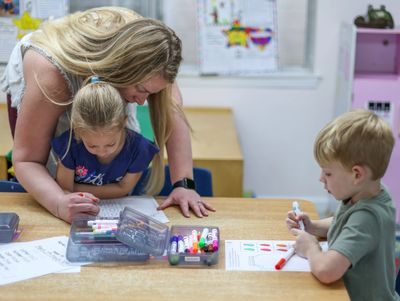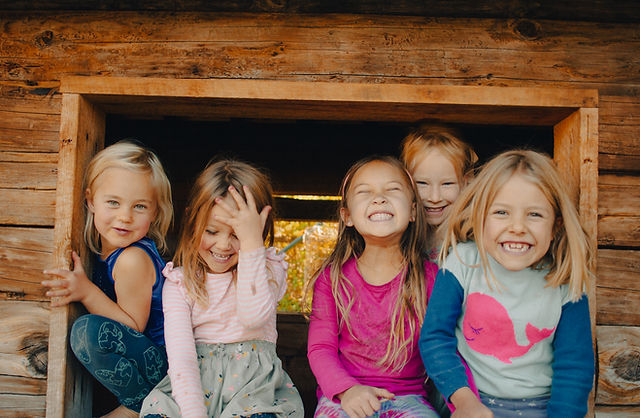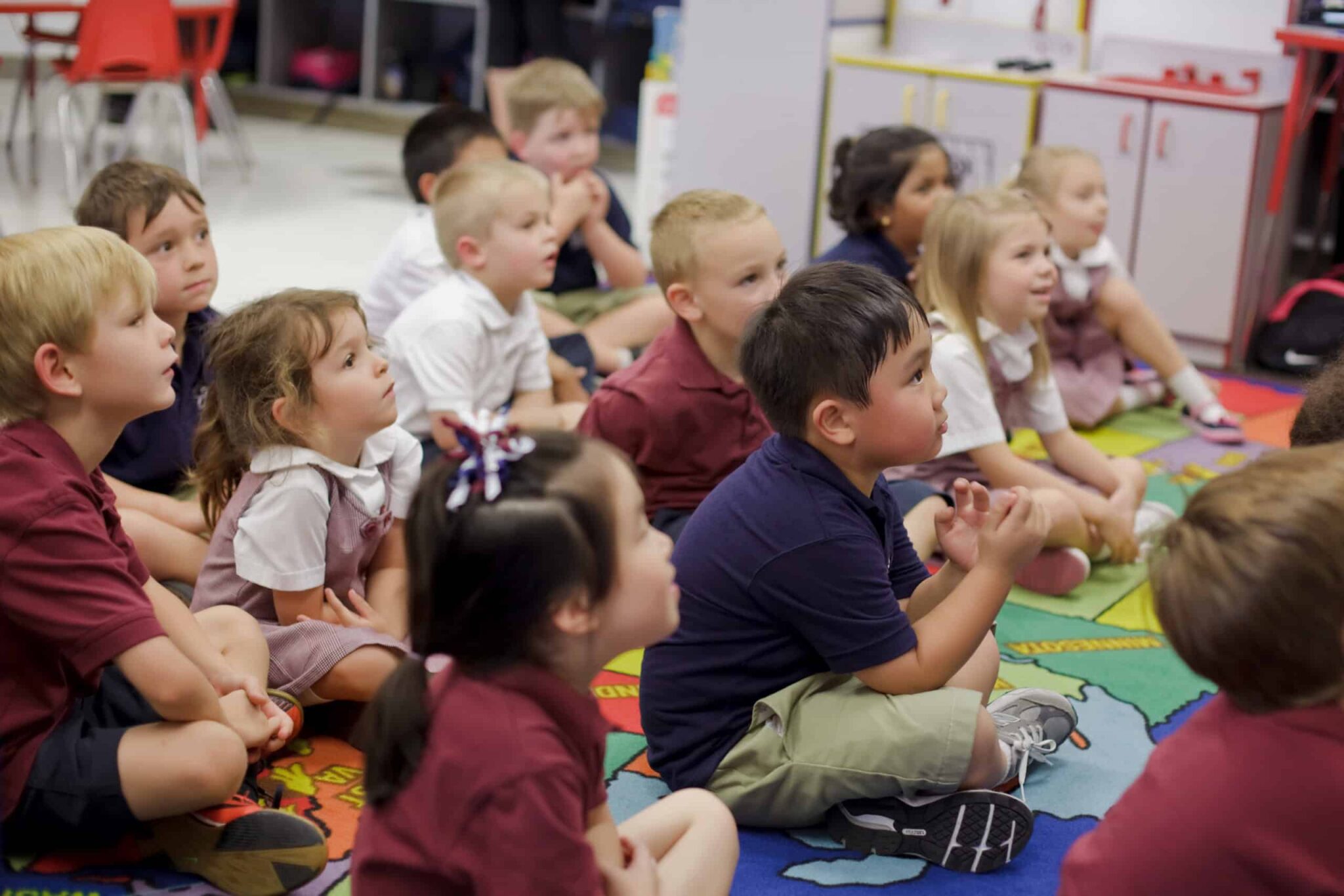How Kindergarten activities nurture early learning and social skills
Wiki Article
The Relevance of Interactive Tasks in Grade College Education And Learning
Interactive activities play an important function in elementary school education and learning. They engage trainees and enhance discovering outcomes. With team jobs and hands-on experiments, pupils experience the material in a sensible way. This approach deals with diverse discovering designs and advertises vital skills. Nevertheless, the advantages extend beyond academics. Discovering the much deeper impact of these activities exposes their importance fit young students' futures. What transformations happen when students proactively get involved?Enhancing Interaction Through Interactive Discovering
Although standard teaching methods have their advantages, interactive discovering substantially improves student interaction in elementary school education. This approach urges energetic involvement, permitting trainees to immerse themselves in the knowing process. By using group tasks, hands-on experiments, and technology-driven sources, educators produce an environment where students feel much more connected to the product.Interactive discovering assists in collaboration among peers, promoting communication abilities and team effort. It additionally deals with diverse knowing styles, making sure that visual, acoustic, and kinesthetic students can all prosper. Students are more most likely to retain details when they actively take part, as opposed to passively obtaining expertise.
This vibrant approach not just makes learning delightful but likewise imparts a sense of ownership in trainees regarding their educational trip. As they engage with the web content, their inquisitiveness and inspiration to find out boost, laying a solid structure for future scholastic success.
Developing Essential Thinking Abilities
Interactive learning not only improves engagement however also serves as a driver for establishing important thinking skills in quality institution pupils. Through tasks such as problem-based learning, discussions, and hands-on experiments, students are encouraged to evaluate info, review different perspectives, and develop reasoned final thoughts. These interactive experiences call for students to wonder about presumptions, leading them to assume more deeply concerning numerous subjects.
Interactive tasks commonly existing real-world scenarios that challenge pupils to use their knowledge creatively. By navigating with these obstacles, they discover to identify appropriate information and make informed decisions. This process cultivates not just private crucial reasoning yet additionally urges students to articulate their thought procedures, enhancing their capability to connect properly. Because of this, interactive discovering environments grow a generation of critical thinkers who are much better prepared to take on complicated issues in their future scholastic and expert ventures.
Cultivating Partnership Amongst Peers
Cultivating partnership amongst peers is important in elementary school education and learning, as it boosts team effort and interaction skills. Participating in team activities assists students construct count on and regard for one an additional, laying the foundation for efficient collaboration. Analytic together enables pupils to discover from each other and develop a cumulative approach to difficulties.Synergy and Interaction Abilities
Reliable synergy and interaction abilities are important elements of an effective quality college education and learning. Involving in interactive tasks encourages trainees to collaborate, share concepts, and address problems with each other. Such experiences advertise the advancement of important interaction capabilities, enabling youngsters to reveal their ideas clearly and pay attention actively to others. Through team effort, pupils find out to appreciate varied perspectives, cultivating a feeling of neighborhood and shared responsibility. Structured team tasks, whether in academics or imaginative tasks, improve peer communications, instructing kids exactly how to bargain functions and resolve conflicts. Subsequently, these skills not only contribute to a positive classroom setting but likewise prepare students for future collaborative ventures in college and the work environment. Generally, synergy and communication are fundamental to alternative growth in grade college.Building Trust and Respect
Building trust fund and regard amongst peers serves as a foundation for effective partnership in grade college settings. They are more likely to involve proactively in team activities when students feel valued and respected by their schoolmates. Interactive tasks, such as team tasks and participating games, give opportunities for students to pick up from each other, promoting a sense of neighborhood. This environment motivates open interaction, enabling pupils to express their concepts and opinions without concern of judgment. As trust fund constructs, students become much more happy to share duties and sustain each various other's learning. Eventually, cultivating an ambience of count on and regard boosts not only scholastic results however likewise social advancement, equipping trainees with important interpersonal skills for their future ventures.Problem-Solving Together
Joint analytic involves trainees in critical thinking and teamwork, important skills for their individual and academic growth. When students interact to take on challenges, they find out to interact wikipedia reference effectively, regard varied point of views, and utilize each other's toughness. This procedure improves their capability to assess problems from various angles and create imaginative options. Team activities, such as science experiments or mathematics difficulties, promote energetic engagement and foster a sense of neighborhood. As pupils team up, they likewise develop social skills, finding out to work out and compromise, which are critical for future communications. Inevitably, problem-solving with each other grows a helpful knowing setting, equipping trainees to take possession of their education and learning while preparing them for collaborative endeavors past the class.Motivating Creative Thinking and Development
Motivating creative thinking and innovation in elementary school education and learning can be substantially improved through hands-on understanding experiences. These tasks allow pupils to involve directly with products and concepts, fostering imaginative thinking. Additionally, collaborative team jobs can promote varied ideas and options, further supporting a creative atmosphere.Hands-On Discovering Knowledge
A wide range of hands-on discovering experiences substantially enhances imagination and technology in quality school education. Engaging pupils in practical tasks permits them to apply academic expertise in real-world contexts, promoting much deeper understanding. By controling devices and materials, youngsters establish vital analytical abilities and find out to think outside the box. These experiences inspire interest and encourage pupils to explore their passions even more. Additionally, hands-on tasks can link numerous topics, linking science, art, and math in significant methods. This interdisciplinary method motivates trainees to see connections and believe artistically. Ultimately, hands-on knowing experiences support view publisher site a generation of innovators, furnishing them with the abilities and self-confidence needed to take on future difficulties and add to culture in unique ways.Collaborative Group Projects
Hands-on learning experiences normally lead to the consolidation of collective group jobs, which play an important function in cultivating creativity and development in elementary school education. These tasks urge students to collaborate, sharing ideas and perspectives, which improves analytical skills and essential reasoning. Through partnership, students find out to connect effectively and respect diverse point of views, essential skills for their future. Additionally, group projects supply opportunities for trainees to trying out various functions, increasing their flexibility and self-confidence. Taking part in this cooperative setting allows them to explore their creative thinking, pressing the boundaries of standard understanding. Eventually, collaborative team tasks not just enhance the educational experience yet likewise prepare pupils for real-world difficulties that require teamwork and innovative reasoning.Building Self-confidence and Independence
As pupils take part in interactive activities, they typically uncover chances to develop confidence and freedom. These activities, whether they include hands-on tasks, role-playing, or analytic tasks, encourage students to take campaign and share their ideas honestly. By joining such experiences, trainees learn to trust their abilities and choose without relying exclusively on guidance from peers or teachers.Additionally, interactive activities foster a feeling of ownership over understanding. They develop vital believing skills and strength when trainees tackle difficulties collaboratively or individually. This procedure not only improves their understanding of the subject issue yet also empowers them to take risks in their discovering trip.
As they browse numerous interactive circumstances, trainees slowly dropped their self-doubt, leading the way for increased self-esteem - Grade School. Inevitably, these activities play a vital role in nurturing independent and confident learners, geared up to deal with future scholastic and individual difficulties
Producing a Favorable Classroom Environment
While fostering a favorable classroom atmosphere is necessary for efficient understanding, it requires deliberate effort from teachers to produce a room where students feel secure, highly regarded, and engaged. A positive atmosphere urges collaboration, allowing pupils to reveal themselves without worry of judgment.Educators can attain this by developing clear expectations, promoting shared respect, and recognizing individual payments. Including interactive activities further enhances involvement, making learning more delightful and vibrant.
In addition, a nurturing atmosphere supports social-emotional advancement, as pupils learn to navigate connections and solve disputes. Teachers play a vital role in modeling favorable actions and enhancing a culture of compassion and inclusivity.
Often Asked Concerns

How Can Moms And Dads Assistance Interactive Learning at Home?
Moms and dads can support interactive understanding in your home by offering appealing materials, urging hands-on tasks, including educational games, cultivating discussions, and creating a nurturing environment that advertises inquisitiveness and expedition in their children's finding out experiences. (Grade School)What Kinds Of Interactive Tasks Are Most Effective?
Hands-on projects, joint games, role-playing situations, and academic innovation applications are amongst one of the most effective interactive tasks. These engage students, enhance critical believing abilities, and advertise teamwork, inevitably fostering a deeper understanding of various subjects.How Do Interactive Activities Accommodate Various Discovering Styles?
Interactive activities engage visual, auditory, and kinesthetic students by integrating diverse approaches. These tasks promote understanding via hands-on experiences, collaborative discussions, and aesthetic help, read here permitting trainees to soak up info according to their preferred understanding design.What Are the Prices Connected With Implementing Interactive Tasks?

Implementing interactive activities incurs costs such as materials, training for instructors, innovation upgrades, and potential facility alterations. Budget constraints can likewise influence the regularity and range of activities used to trainees in instructional settings.
How Can Teachers Evaluate the Effect of Interactive Discovering?
Teachers can assess the effect of interactive discovering through monitorings, pupil feedback, performance metrics, and comparative evaluation of examination scores before and after implementation, ensuring an extensive understanding of engagement and expertise retention enhancements.With tasks such as problem-based knowing, arguments, and hands-on experiments, trainees are motivated to assess information, review different point of views, and formulate reasoned verdicts. Interactive tasks commonly present real-world scenarios that challenge trainees to apply their expertise artistically. Engaging in interactive tasks encourages students to work together, share ideas, and fix troubles together. Interactive activities, such as team projects and cooperative games, give possibilities for pupils to find out from one another, fostering a feeling of community. As students involve in interactive tasks, they typically discover possibilities to develop self-confidence and freedom.
Report this wiki page